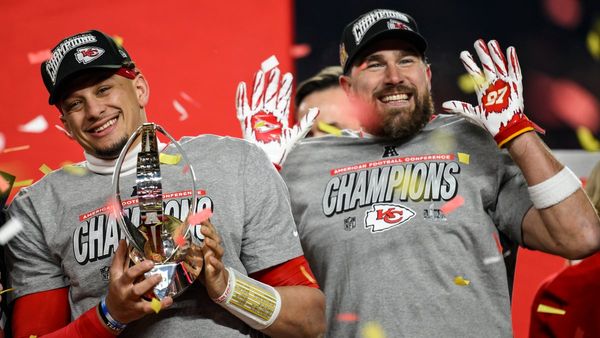The Welsh Government and Welsh NHS have been criticised for removing the words women and girls from a campaign on periods and using the phrases “people who bleed across Wales” and “those who menstruate” instead.
The Bloody Brilliant campaign has said it will be making changes to its materials following widespread criticism of its decision not to use the words women or girls. It follows the omission of the terms male and female in the new curriculum. The Relationships and Sexuality Education (RSE) Code does not explicitly reference “boys”, “girls”, “straight” or “heterosexual”.
Campaign group Merched Cymru said the latest erasing of the words women and girls from the Welsh Government-funded website Bloody Brilliant - which aims to break taboos and provide information menstruation - and "confusing" wording in the Welsh Government's Period Dignity Action Plan are “dehumanising”. You can get more health news and other story updates straight to your inbox by subscribing to our newsletters here.
Read more: Pupils haven't received vital summer period products despite supplies being given to schools
Shadow Education Minister Laura Anne Jones has also criticised the Bloody Brilliant wording in a tweet and the campaign's Facebook page also contains a series of comments attacking the phrases used. In response NHS Wales Health Collaborative said it will be now be changing the Bloody Brilliant website and resources to include the words women and girls .
But some critics said some children are now so confused by the words used around sex and menstruation publicly that teachers are reporting some pupils arriving at secondary school not knowing who has periods.
Martha Gwion from Merched Cymru said: “The Period Dignity Action Plan, that went out to consultation at the beginning of the year, used awkward and confusing language, deliberately avoiding the use of the words women and girls. Instead of being person centred so that it can reach women and girls in marginalised or vulnerable groups effectively, it is focused on bodily functions and on avoiding sex-based language completely. “Those who menstruate” is not clear language.
“Welsh Government claims that this is in order to be “inclusive” but it is actually othering, confusing and dehumanising – definitely not something that reduces stigma and taboo. It would have been perfectly possible to make sure that women and girls know that this strategy is for and about something uniquely female, while at the same time acknowledging that it also applies to those who are female but have adopted a different gender identity.
“The need for clear, accurate language in public health messaging is well established. It’s difficult to understand how professionals in Public Health Wales, Welsh Government and practitioners thought it was a good idea to throw that established knowledge out of the window.”
She said the group has been told by professionals that the whole topic of periods has now become so taboo that children starting high school are “anxious” talking about them - but for new reasons: “Our supporters and members include teachers, ALN specialists, health educators, social workers, women involved with Girl Guiding and youth workers, none of whom endorse this kind of language. They’ve told us that children are starting secondary school unclear about who has or doesn’t have periods and anxious about expressing a view that it is a female-only process.
“Women have contacted us to say how unhappy they are and that they will not be using the Bloody Brilliant resource with their own daughters or any young people they work with.”
Merched Cymru said: “The adverse consequences of deliberately adapting language to be impersonal, ideological, based on body parts and bodily functions, or being ‘gender-neutral’ on an issue so clearly related to biological sex will be experienced by the very groups a Period Dignity Strategy needs to reach."
Responding to criticism about the Bloody Brilliant campaign NHS Wales Health Collaborative said the website and resources would now be changed: "The website, resources and campaign for Bloody Brilliant have been designed to empower young women and girls by sharing expert knowledge and helping to start conversations about period health – so no one has to suffer in silence.
"We want Bloody Brilliant to be a resource that is authentic and relevant to our audience and so we have listened carefully to recent feedback on our use of language. Having considered a wide spectrum of views, we will be making some changes to include referring to young women and girls rather than ‘people who bleed’ (whilst remaining sensitive to the needs of those who menstruate, but do not identify as female). "
The Welsh Government's Period Action Plan, which was sent out for consultation earlier this year, says “person who menstruates” will be the most frequently used phrase to describe who has periods, in the document.
The document says: " Menstruation is a specific experience of the female sex, however not all people who are assigned female at birth, or who identify as women, menstruate. Conversely, there are people who identify as genders other than women, such as trans men, intersex and non-binary people who also menstruate. The language used within this Action Plan is deliberately broad as the plan aims to include all who menstruate.
"Where research or publications cited in this plan uses particular language, that language is reproduced here. Moreover, where actions in this plan are aimed specifically at a particular group, specific language around that group is used. As a result, this plan includes use of the terms “women”, “girl”, “those who menstruate”, “learner” and “patient” throughout. In order to be inclusive, the term “person who menstruates” will be used most frequently to encompass all affected by this plan. "
A Welsh Government spokesperson said: “Our intention is always to use inclusive language and not exclude anyone from learning about and discussing these important topics. Research and focus groups with young people from Wales helped to design and inform the Bloody Brilliant campaign, as well as our upcoming Period Dignity Plan. We will be publishing our Period Dignity Plan in the autumn and will take into account views expressed in the consultation.”
The Welsh Government said the PHSE curriculum guidance preceding the RSE code also did not make reference to male and female. Supporting statutory guidance, which all schools must consider alongside the code, "makes a number of references to women," a spokesperson added.
Read next:,
The Cardiff teenager fighting against period stigma and poverty
Why it's so hard being a breastfeeding mum in Wales
Carol Vorderman describes going through the menopause as the 'deepest darkest depression
The two single mums helping thousands of others like themselves
Welsh model launches lingerie and swimwear specifically for transgender community







